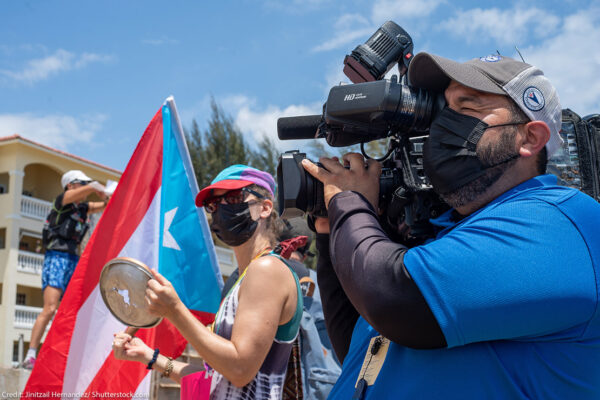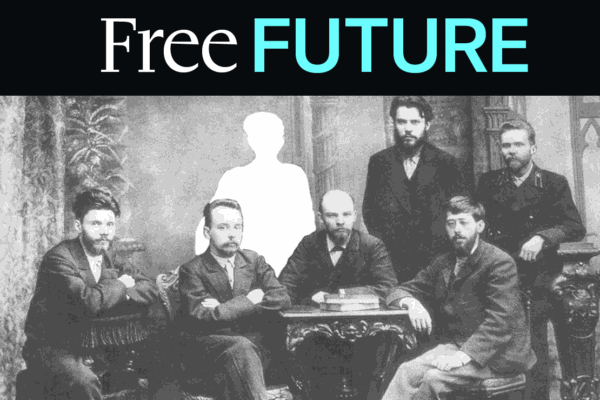ACLU Urges William & Mary to Allow Controversial Show to Go On
FOR IMMEDIATE RELEASE
CONTACT: media@aclu.org
Attorney for civil liberties group says contract violates performers’ rights
Richmond, VA -- The American Civil Liberties Union of Virginia today faxed a letter to William & Mary President Gene Nichol urging him to allow a performance of the Sex Workers’ Art Show to take place tonight as scheduled. The letter also informs him that a special contract the college is requiring sponsoring students and performers to sign is unconstitutional.
William & Mary officials have resisted the student-sponsored event, which addresses sex, social class, and work in a variety-show format, since last fall when students first sought a venue and monetary support. The show has been performed without incident for several years in college venues across the country. It was performed last night at Duke University and, among more than 20 other venues this month, will be performed at Harvard, University of Michigan, and the University of Indiana.
Today’s letter, sent by ACLU of Virginia Legal Director Rebecca Glenberg, is the second sent by the ACLU of Virginia. In the first, emailed last week to Mark Constantine, Assistant Vice President of Student Affairs, ACLU of Virginia Executive Director Kent Willis argued that the Sex Workers’ Art Show has the same right to perform on campus as any other student-sponsored event, and that it should not be subject to special restrictions not required of other shows.
Willis wrote: “While certainly risqué and edgy, neither of which implicate obscenity laws, the Sex Workers’ Art Show is an event rich in images and messages about society, sex and work. In short, it is precisely the kind of expression the First Amendment is intended to protect.”
School officials have asked the sponsoring-student organizations and the performers to sign an addendum to the standard contract in which the students must waive the Virginia law that exempts programs at state-funded schools from the obscenity law, prohibit recordings of the event, and allow the university to withhold payment if in its “sole discretion” Virginia’s obscenity law has been violated.
The sponsoring students and representatives of the Sex Workers’ Art Show sought to amend the addendum to give a court the authority to decide if obscenity laws have been violated and to allow performers to record the show as a defense against obscenity charges. The school refused.
A copy of the letters from Willis and Glenberg can be found below.
February 4, 2008
Via Facsimile (757) 221-1259
Gene R. Nichol, President
College of William and Mary
Office of the President
P.O. Box 8795
Williamsburg, VA 23187-8795
Dear President Nichol:
I write to voice our strong objections to your insistence that the Sex Workers’ Art Show (the “Art Show”) and the student organizations sponsoring it sign a contract addendum in order for the show to go forward this evening. Specifically, it is our opinion that to single out the Art Show for special requirements solely on the basis of its sexual content violates the First Amendment to the United States Constitution.
It is my understanding the College of William and Mary has a standard contract that is used for all performances using campus venues. In addition to this contract, you have demanded that the Art Show and its sponsors sign an addendum that has not been required of any other student-sponsored special events. The addendum requires the Art Show and sponsoring organizations to refuse admission to persons under the age of 18, which, I understand, the Art Show and sponsoring organizations have already agreed to do. Additionally, however, the addendum contains the following unreasonable and onerous conditions:
1. It requires the performance to comply with laws pertaining to obscene performances, even though those laws contain an express exception for performances at institutions of higher education. Va. Code § 18.2-383. It is my understanding that this requirement is not pursuant to a general university policy that applies to all performances at the university, but rather is being specifically and solely imposed on the Sex Workers’ Art Show on the basis of its content, notwithstanding the fact that the Art Show has been performed on numerous other campuses and at other venues without ever having been charged with obscenity-related offenses.
2. It prohibits any recording of the Art Show, even by the Art Show itself or the sponsoring organizations for their own purposes. Again, this requirement is being imposed on the Art Show solely based on its content. The requirement is particularly onerous in that, should the College later decide that the performance was in fact obscene, the Art Show and its sponsors will have no record of the performance to dispute the College’s finding.
3. In the event of a breach of these requirements, it allows the College, “in its sole discretion,” to cancel or terminate the performance, deny the sponsoring organizations space or funding for future events, withhold the Sex Workers’ fee and ban them from future performances on campus.
It is my further understanding that this contract addendum comes on the heels of earlier efforts by the College to prevent this show from going forward. Specifically, it is my understanding that the show was initially denied a venue under the school’s “lottery” system, while every other applicant was granted a venue. Then, the show and its sponsors were told that they would not be given a venue until funding for the show was secured, a condition that was not imposed on any other events. In short, this last-minute contract addendum appears to be part of a well established pattern of discrimination against the Art Show based on its content.
For these reasons, we strongly urge you to allow the Art Show to go forward on an equal basis with other student-sponsored events, without requiring the additional restrictions imposed in the contract addendum.
Sincerely,
Rebecca K. Glenberg, Legal Director



